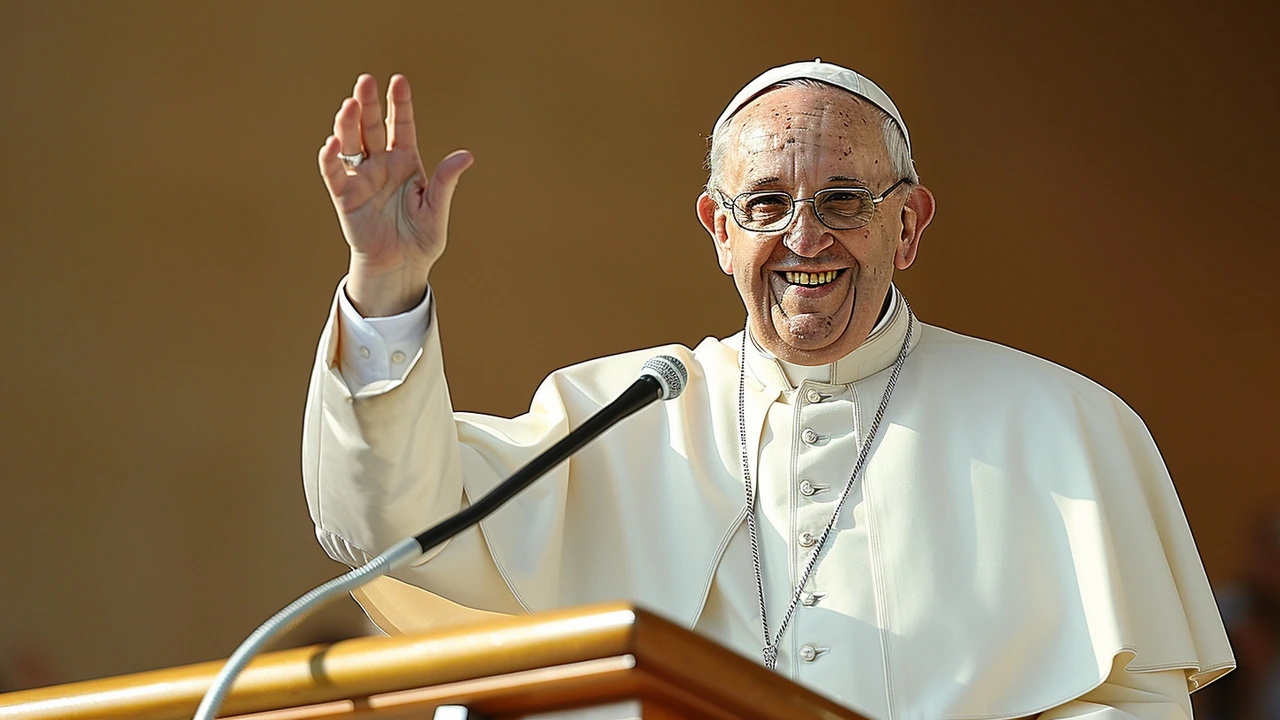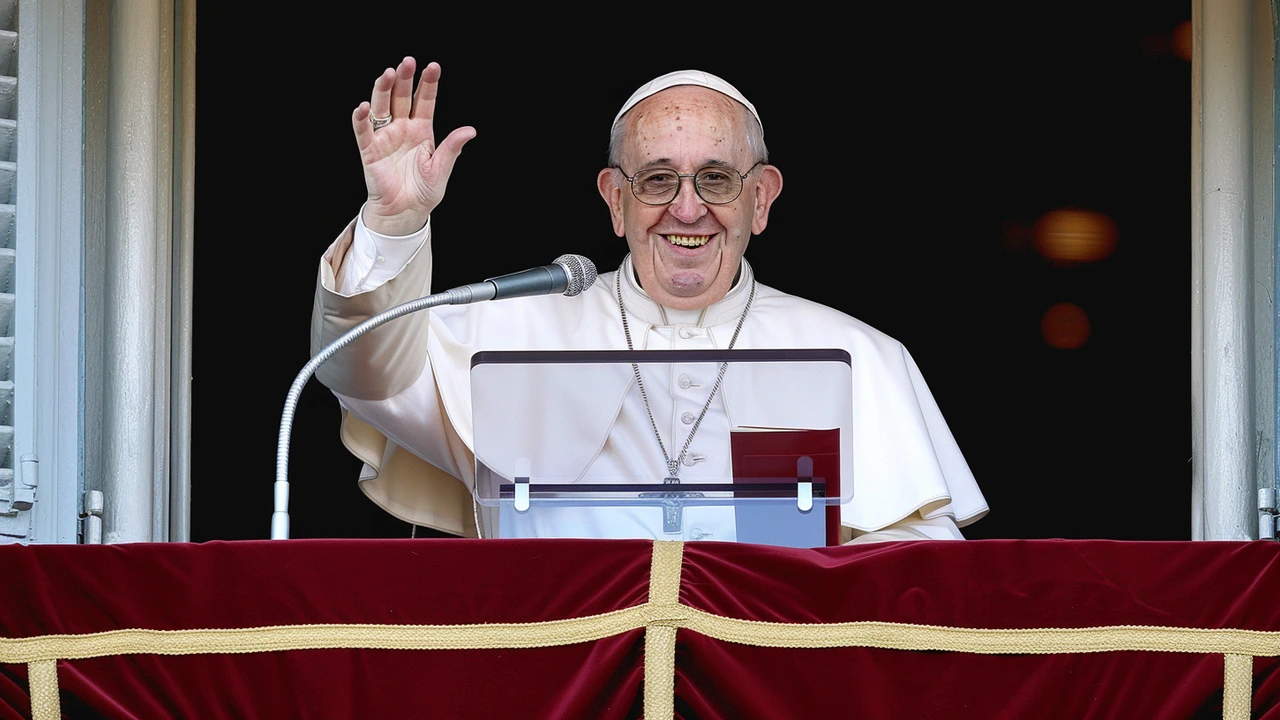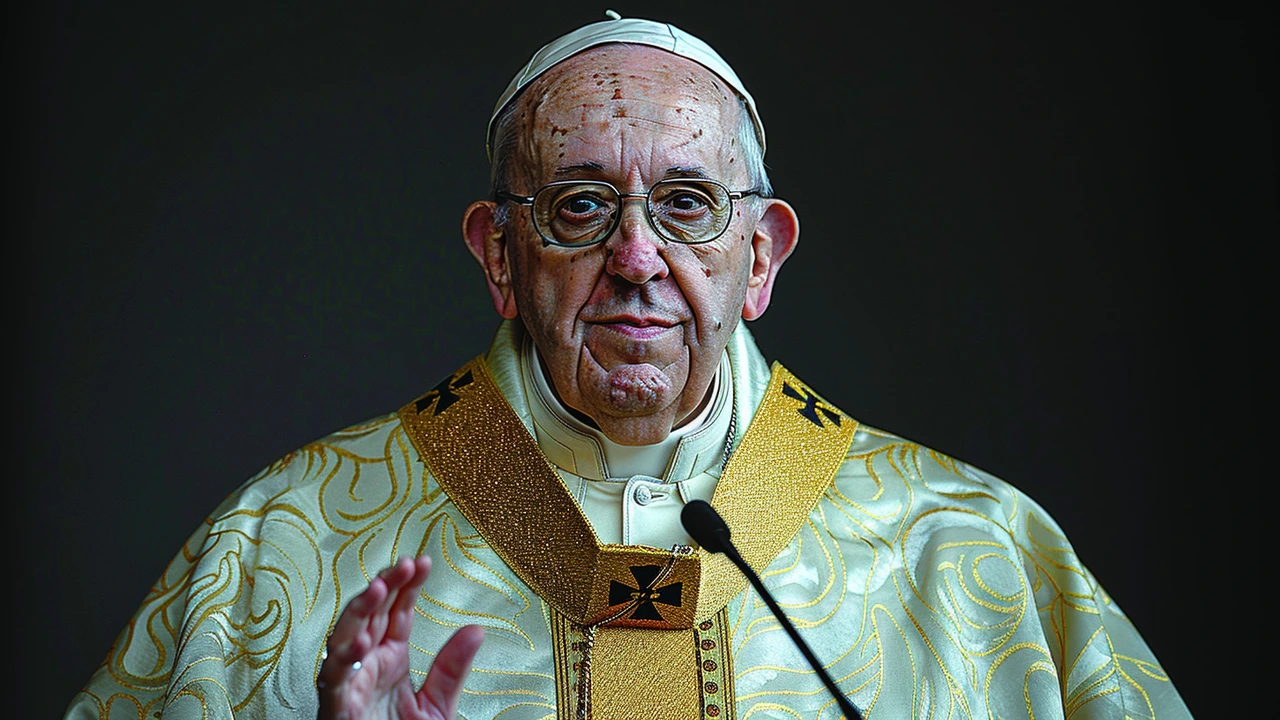Pope Francis Issues Apology Following Controversial Comment
Pope Francis, known for his progressive approach in many areas, has found himself in the center of a heated controversy following a private discussion with Italian bishops. Held on May 20, 2024, the meeting took an unexpected turn when the Pope used a derogatory term, 'frociaggine,' which translates to 'faggotry,' in response to a query about whether LGBTQ+ individuals could train for the priesthood if they committed to celibacy. The Vatican quickly responded to the media outcry, confirming the incident and issuing an apology on behalf of the pontiff.
In the apologetic statement, Pope Francis expressed genuine remorse, stating that he never intended to offend or convey homophobic sentiments. His choice of words was unfortunate, and he sought to rectify any hurt caused by his comments. The statement further emphasized that the Pope has always aimed to be inclusive and compassionate towards all members of the Catholic community, including those belonging to the LGBTQ+ spectrum.
Context and Repercussions
The incident has added significant weight to ongoing debates regarding the Catholic Church's stance on homosexuality and the ordination of gay priests. Traditionally, the Church has held a firm position against the inclusion of gay men in the priesthood. However, there has been a noticeable shift towards a more compassionate and understanding approach since Pope Francis assumed papal duties. His famous remark, 'Who am I to judge?' in 2013 marked the beginning of what many hoped was a more inclusive era for LGBTQ+ Catholics.
Despite this progress, the recent controversy underlines the delicate balance the Church must maintain as it navigates these complex issues. On one hand, there is a growing demand from contemporary followers for a more inclusive and accepting Church. On the other, traditionalists argue that the core doctrines should remain unchanged.

Ongoing Review of Seminary Training Guidelines
The Vatican's review of its seminary training guidelines is a crucial backdrop to this controversy. The new document under consideration could potentially offer more flexibility regarding the Church's ban on gay priests. This review is seen by some as a litmus test for the Pope's commitment to inclusivity.
The guidelines aim to address the formation and training of future priests comprehensively. Among various topics, it considers the nuances involved in the lives of LGBTQ+ individuals who feel a calling to serve the Church. The essential question revolves around whether the Church can welcome these individuals without compromising its doctrinal stances.
If the new guidelines do indeed soften the stance on gay priests, it would represent a significant shift for the Vatican. However, such a change would also invite scrutiny and possibly backlash from more conservative factions within the Church.
Mixed Reactions from the Faithful
The Pope's apology and the circumstances surrounding it have elicited mixed reactions from both the faithful and the broader public. Many supporters appreciate the pontiff's quick response and his willingness to apologize, viewing it as a sign of humility and openness. They believe this incident could spark necessary conversations about the Church's role in modern society and its approach to LGBTQ+ issues.
On the other hand, critics argue that the Pope's comment reveals underlying tensions within the Church regarding homosexuality. They see it as indicative of a broader, systemic issue that requires more than just an apology to resolve. These critics emphasize the need for substantial, structural changes within the Church to ensure true inclusivity for all its members.

Pope Francis' Track Record on LGBTQ+ Inclusion
Pope Francis' tenure has been marked by efforts to reach out to marginalized communities, including LGBTQ+ individuals. His 'Who am I to judge?' comment earned him accolades from progressive corners but also invited skepticism from traditionalists. Since then, he has continued to walk a fine line, advocating for compassion and inclusivity while adhering to the Church's doctrinal teachings.
The Pope has often emphasized the importance of pastoral care and understanding. He has encouraged clergy to focus on the person rather than the labels society might attach to them. In various public addresses, he has reiterated that the Church's doors should be open to everyone, regardless of their sexual orientation.
However, incidents like the recent one underscore the complexities and challenges inherent in steering an age-old institution towards modern values. The Pope's apology is a reminder that progress is often fraught with setbacks, and the path to true inclusivity is rarely straightforward.
The Road Ahead
As the Vatican moves forward with its review of seminary training guidelines, all eyes will be on Pope Francis and his administration. The decisions made in this review will likely have far-reaching implications for the Church's relationship with its LGBTQ+ members. It represents an opportunity for the Vatican to demonstrate its commitment to inclusivity, beyond mere rhetoric.
Whether the new guidelines will indeed pave the way for a more accepting and inclusive Church remains to be seen. What is clear, however, is that Pope Francis' leadership will be crucial in navigating these turbulent waters. His willingness to apologize and acknowledge mistakes is a step in the right direction, but lasting change will require continuous effort and genuine commitment from the entire Church hierarchy.
The conversation sparked by this incident serves as a poignant reminder of the evolving nature of faith and its institutions. As society progresses, so too must its religious institutions, adapting and growing alongside their followers. The path forward may be uncertain, but it is a journey worth undertaking for the future of a more inclusive and understanding Church.

Write a comment